Conduction of action potentials
By: HWC
Date Uploaded: 11/14/2019
Tags: homeworkclinic.com Homework Clinic HWC Action potentials Conduction of action potentials depolarizes refractory period axonal membrane repolarizing
• Action potentials must be rapidly conducted over long distances in order for the nervous system to communicate with other cells. • Propagation of an action potential uses processes similar to those that generate the potential at the trigger zone. • a When a graded potential reaches threshold and triggers an action potential, a positive feedback cycle begins. • As voltage gated Na+ channels open, and Na+ions flood into the cell, this segment of the membrane depolarizes until its voltage is reversed. • At the peak of the action potential, the influx of sodium cause sodium gates in the adjacent segment of the membrane to open. • At the same time gated K+ channels are opening and Na+ channels are closing, repolarizing the original segment of the membrane and placing it in a refractory period. • During the refractory period a second action potential cannot be generated in this portion of the membrane. • However, the graded potential can depolarize to threshold in the segment in front, thus generating another action potential. • This cycle continues along the length of the axonal membrane from trigger zone to the axon terminals.
Add To
You must login to add videos to your playlists.
Advertisement



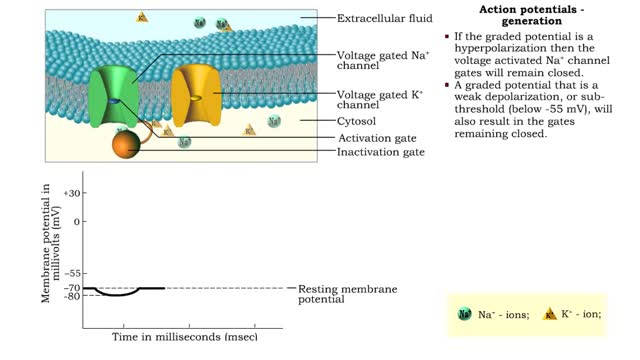
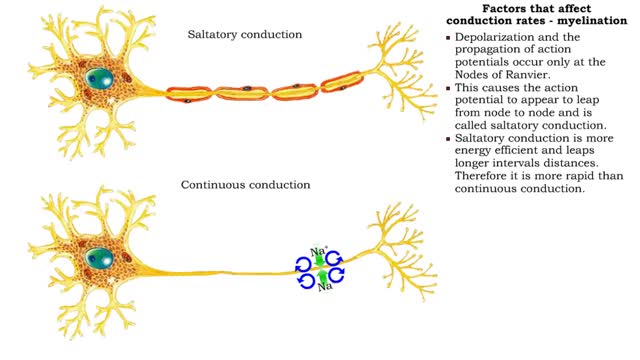
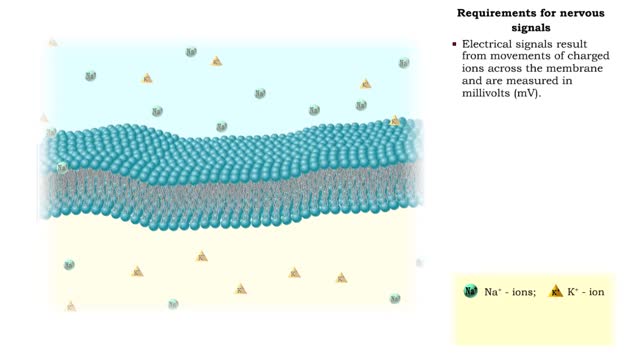
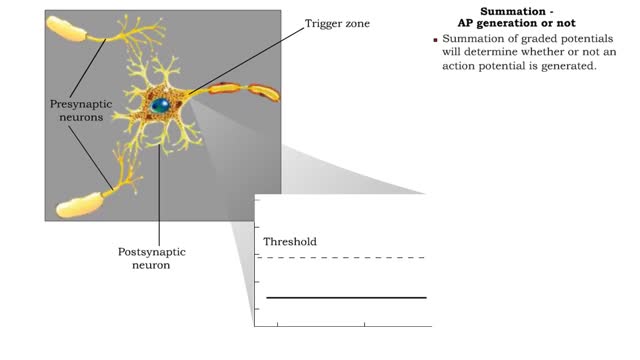
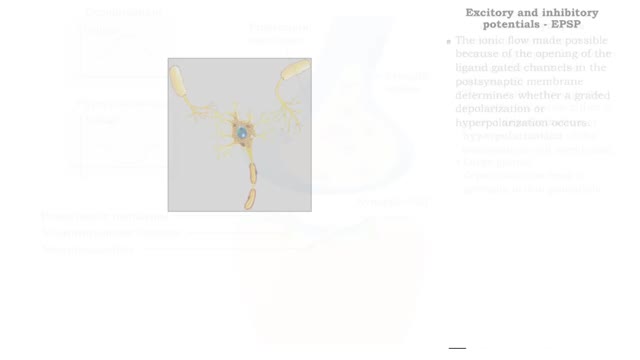
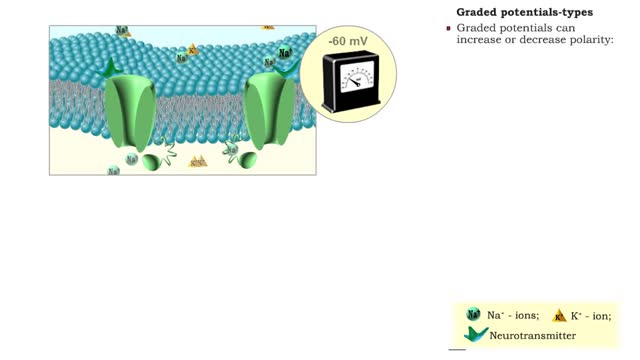
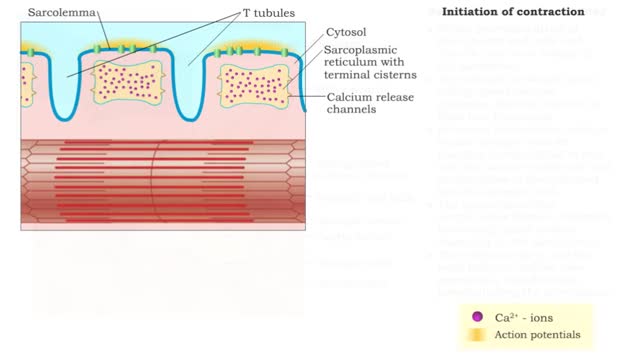
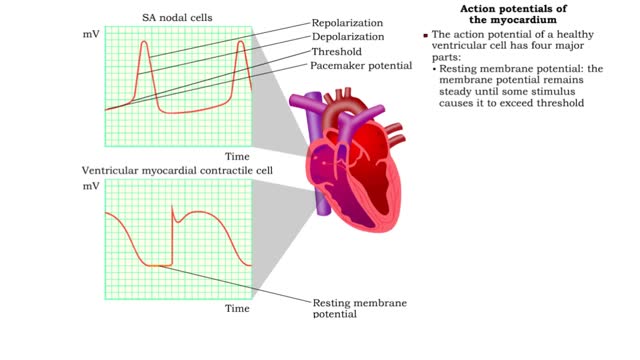
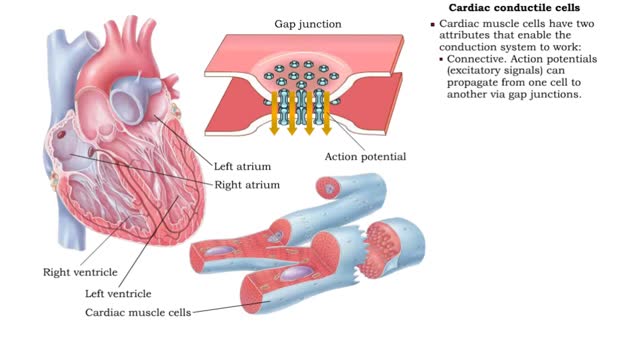
Comments
0 Comments total
Sign In to post comments.
No comments have been posted for this video yet.